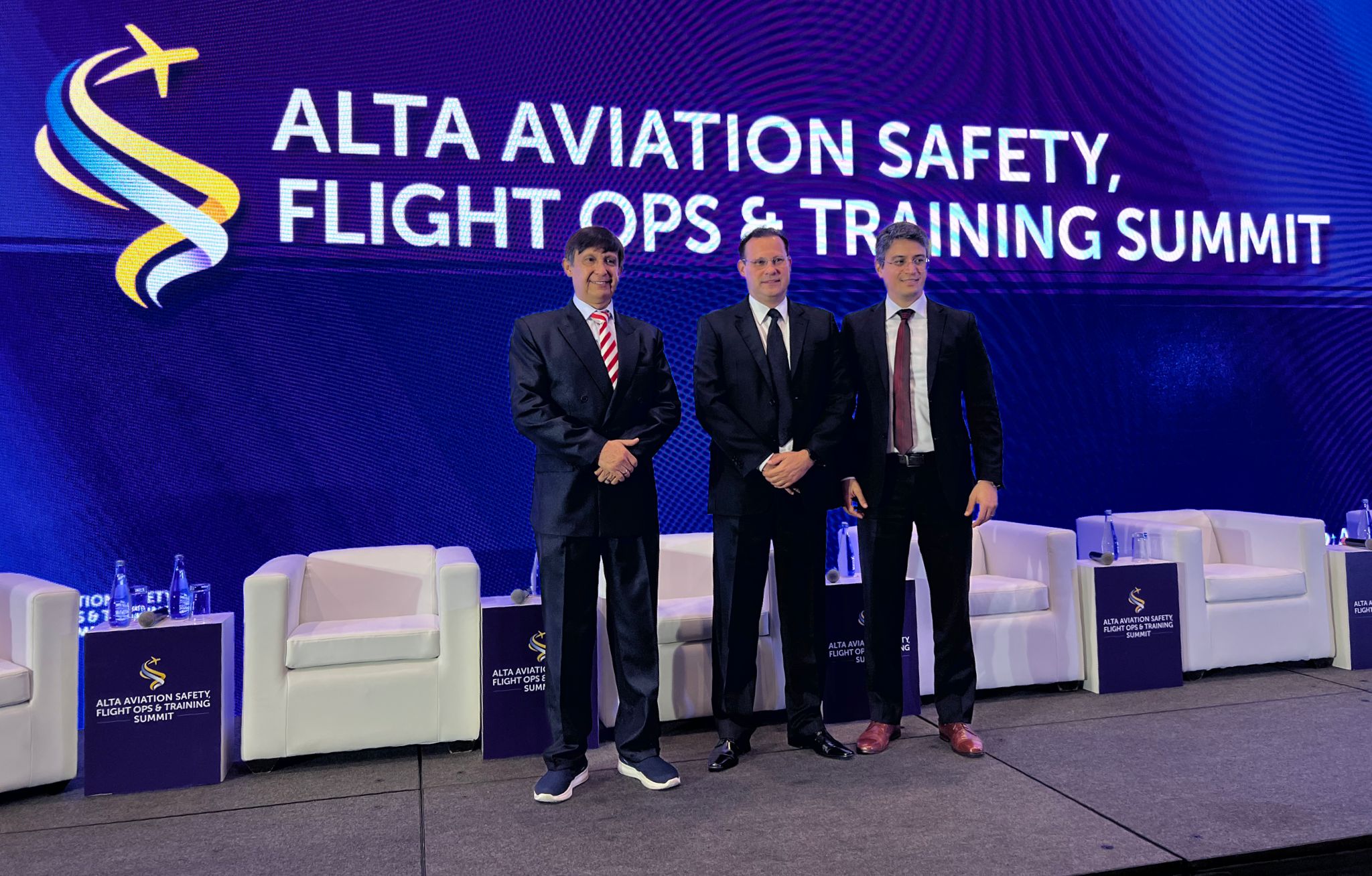Operational excellence: the key to making aviation the safest mode of transportation
People are at the heart of the safety culture and the achievement of operational excellence. Technological advancements serve as support tools
June 21, 2024

Lima, June 21, 2024 - Safety and operational excellence are the bedrock of aviation, a fact that was clearly highlighted in the educational panels, presentations, and working sessions at the ALTA Aviation Safety, Flight Ops & Training Summit. The event, held in Lima this week, brought together leaders and experts in aviation safety, operations, and training.
Creating a safety culture in aviation is essential. This culture is built by people and involves everyone in the ecosystem, sharing a collective commitment to safe practices and continuous vigilance. While technology plays a critical role in safety management by providing advanced tools for oversight, data analysis, and emergency response, it cannot replace human judgment, expertise, and accountability.
In 2023, commercial aviation in the Americas achieved zero fatalities—a remarkable milestone for a sector that accounts for more than 35% of global air traffic," explained Fabio Rabbani, ICAO South America Regional Director.
Rabbani emphasized that projections suggest the number of passengers could increase from the current 4.6 billion to 12.4 billion by 2050, nearly tripling over the next 25 years. Consequently, "it is crucial that services remain fully available, with updated regulatory frameworks, infrastructure capable of supporting the increase in movements, trained personnel, and above all, safe operations."
The experts at the summit underscored that operational excellence is the foundation of safety. While achievements should be celebrated, more work is necessary to maintain these standards, with a focus on three critical challenges: climate change, infrastructure to support industry growth safely and efficiently, and the formation of collaborative working groups.
"We must continue to support our professionals to ensure that aviation remains a success. Our goal is to protect lives and promote a safe and sustainable global system, connecting the world for the benefit of all nations and people. Safety management is not an isolated activity within each organization but part of an integrated system, like a finely tuned engine," said Rabbani.
Technology supports human capabilities and reduces the risk of errors, but true safety is achieved when everyone involved in aviation adheres to strict procedures, communicates effectively, and maintains a proactive attitude toward incident prevention. The synergy between a safety culture promoted by people and the intelligent use of technology truly strengthens aviation safety.
Donald Castillo, Director General of Peru's DGAC, emphasized that safety should be the foremost consideration in aviation. "I believe we all agree on this concept, and that is what we strive for. We are talking about connectivity and transporting people, so when you think about aviation, you must think about safety, because this is the safest means of transportation in the world."
Jose Ricardo Botelho, CEO and Executive Director of ALTA, highlighted the ongoing challenge to maintain and elevate standards as new technologies, procedures, and equipment are introduced, allowing this essential sector to grow at the pace demanded by the population.
The ALTA Aviation Safety, Flight Ops & Training Summit once again demonstrated the importance of collaboration and knowledge sharing in promoting safety and efficiency in aviation. The active participation of nearly 300 professionals and the depth of the discussions reaffirmed our commitment to excellence. From the speakers to the sponsors and all attendees, everyone contributed to the success of this event. Together, we will continue to advance towards an even safer and more innovative future for aviation in Latin America and the Caribbean.
























